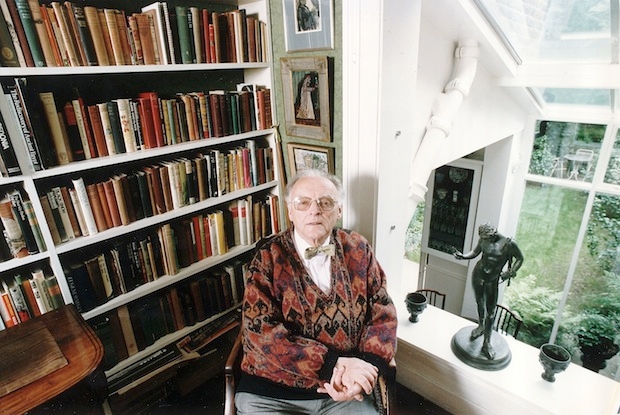Gide wrote to Simenon: ‘You are living on a false reputation — just like Baudelaire and Chopin. … You are much more important than is commonly supposed.’ Something of the kind could, I feel, be said about Francis King (1923–2011), who was prolific, like Simenon (his last book, Cold Snap published in 2009 was his 50th), an active, sociable member of the British literary community, conservative but beguilingly tolerant, and an internationally respected professional.
But now that Macmillan Bello have reissued 24 titles from his large output, of commendably equal artistic quality, we are better placed to appreciate just how unflinchingly penetrative was the gaze he turned on individuals and societies and how unusually daring his imaginative scope. Always firmly constructed and lucidly, flexibly written, his novels regularly confront distress and violence, often in their ugliest forms. In them, passions fight hard, even viciously, for assertion, but also go cruelly under, back beneath the suffocating blankets of conventional life. But they may well re-emerge, dangerously transmogrified.
All this is abundantly apparent in King’s first book, To the Dark Tower (1946), written when he was a 22-year-old Oxford undergraduate. Its certainty and ingenuity of structure, presentation and analysis are dauntingly impressive. General Sir Hugh Weir, soldier, explorer, writer, lives in august isolation above Dartmouth Bay, by a spartan code that already has (literally) killed his son and now represses his young daughter, Judith. But Judith’s teacher, Shirley, entertains a desperate fixation on him, her only desideratum being a meeting ending in loving union.
At the end of the novel a disappointed Shirley writes to Hugh:
I have no thoughts of the future. I do not know what will become of you. I see you still as a superman, the embodiment of my own and perhaps this country’s destiny…if you will only awake to your power.








Comments
Join the debate for just £1 a month
Be part of the conversation with other Spectator readers by getting your first three months for £3.
UNLOCK ACCESS Just £1 a monthAlready a subscriber? Log in